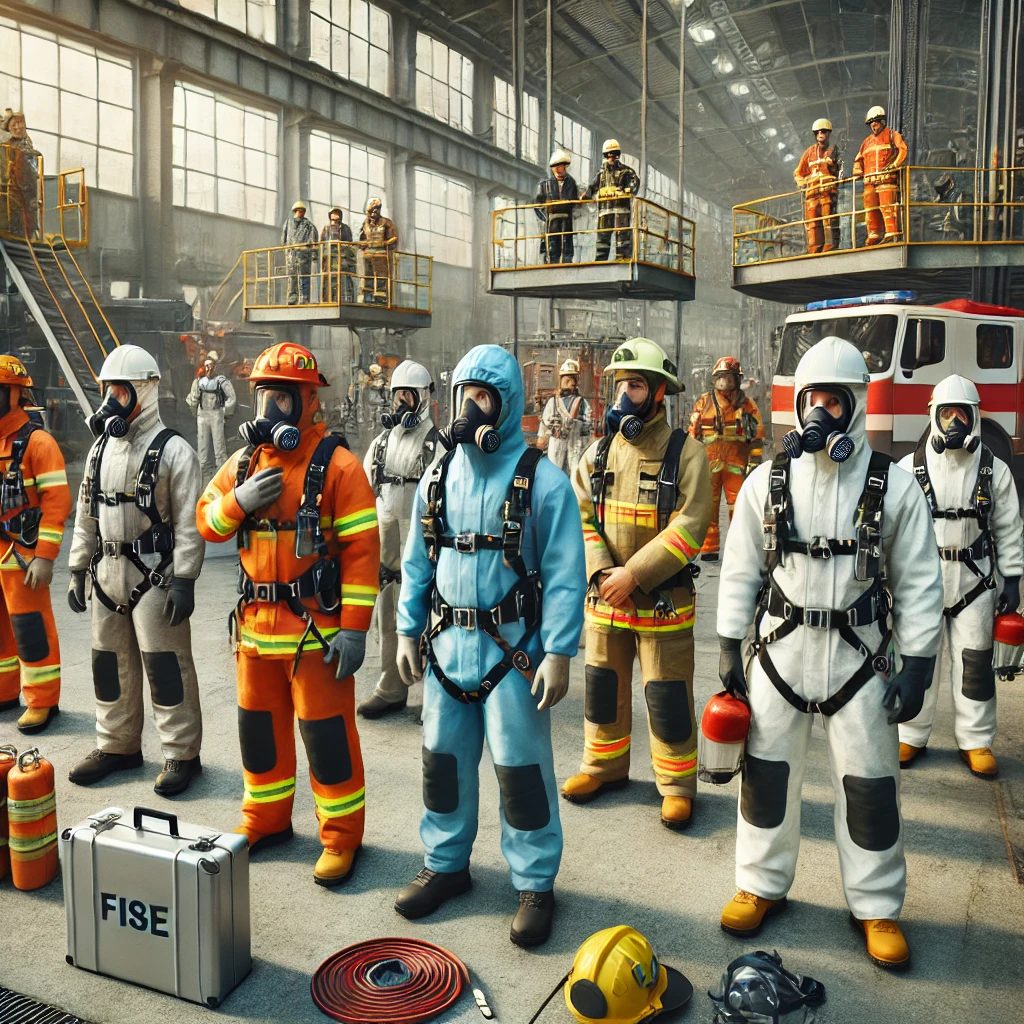Strengthening Workplace Safety in India: BIS's Role in Quality Standards and Certification
The BIS is tasked with formulating and enforcing quality standards that span several industries and sectors, including manufacturing, construction, and electrical equipment.

- Country:
- India
Workplace safety in India has become a priority due to its critical impact on the well-being of workers. The Bureau of Indian Standards (BIS), which operates under the Ministry of Consumer Affairs, Food and Public Distribution, plays an essential role in ensuring product quality and safety across various sectors in India. By developing Indian Standards (IS) and enforcing compulsory certification through Quality Control Orders (QCOs), BIS helps create a safer work environment, reducing risks and preventing accidents that could lead to injuries or fatalities.
BIS and the Quality Control Orders (QCOs)
The BIS is tasked with formulating and enforcing quality standards that span several industries and sectors, including manufacturing, construction, and electrical equipment. Through the issuance of QCOs, the government ensures that products meet rigorous safety standards, providing consumers and workers alike with the confidence that products used in the workplace are of high quality.
As of now, a total of 187 QCOs have been issued, covering 769 products. These products span a range of industries, including construction, electrical equipment, and machinery, all of which must adhere to BIS certification. The certification process ensures that these products meet the Indian Standards required for safety and quality. The list of these products can be accessed through the BIS website, allowing industries and consumers to stay informed about which products are covered by compulsory certification.
In addition to industry-specific QCOs, two significant horizontal QCOs have been issued to address safety aspects of products:
-
Safety of Household, Commercial, and Similar Electrical Appliances (Quality Control) Order, 2024: This QCO applies to all electrical appliances with a rated voltage not exceeding 250 V single-phase alternating current or 415 V three-phase alternating current, provided they are not already covered by other QCOs. It mandates that these products meet BIS certification to ensure they adhere to the necessary safety standards for consumer protection.
-
Machinery and Electrical Equipment Safety (Omnibus Technical Regulation) Order, 2024: This order targets 20 categories of machinery and electrical equipment, as well as their components and sub-assemblies. Like the previous QCO, it ensures that all equipment within these categories is certified by BIS to guarantee safety and quality.
BIS's Role in Labour Safety at the Workplace
BIS has also conducted several "Manak Manthan" sessions across different cities such as Gwalior, Hyderabad, Chandigarh, Hubli, Chennai, and Dehradun. These sessions have been a platform for discussing labor safety, with key stakeholders, including government bodies, industries, and standards organizations, collaborating to enhance safety practices at the workplace. The discussions are designed to raise awareness about labor safety standards and encourage their implementation across various sectors.
By bringing together government officials, industries, and standardization experts, BIS aims to improve safety measures and work toward reducing workplace accidents and fatalities.
Standards for Respiratory Protection
Occupational health and safety standards in India cover a broad range of protective measures. Respiratory protection is critical in industries such as mining, chemical processing, construction, and healthcare, where workers are exposed to harmful airborne substances. BIS has developed several Indian Standards for respiratory protective devices that ensure workers are adequately protected from respiratory hazards.
Some of the key standards in respiratory protection include:
-
IS 9473: 2002 – Filtering half masks to protect against particles.
-
IS 14166: 1994 – Self-contained open-circuit compressed air breathing apparatus.
-
IS 14746: 1999 – Self-contained closed-circuit breathing apparatus.
-
IS 15803: 2008 – Powered filtering devices incorporating a helmet or hood.
-
IS 10245 (Parts 1-4) – Includes various self-contained breathing apparatus, including those for industrial, mining, and firefighting applications.
These standards ensure that workers are equipped with high-quality respiratory protection, reducing their risk of respiratory diseases caused by harmful airborne contaminants.
Fall Prevention Standards
Falls from heights are a leading cause of workplace fatalities, particularly in construction and manufacturing industries. The IS 3521 series provides guidelines for personal fall protection systems, offering comprehensive measures to reduce the risk of falls. Some key standards include:
-
IS 3521 (Parts 1-9) – Covers full-body harnesses, lanyards, energy absorbers, lifelines, anchorage systems, connectors, rescue equipment, and anchorage devices.
These standards are crucial for industries where workers perform tasks at elevated heights, ensuring their safety through the use of fall prevention gear and systems.
Fire Safety Standards
Fire safety is another critical area where BIS standards help protect workers. Fires pose a significant risk, particularly in industries that handle flammable materials. The implementation of stringent fire safety standards ensures that workers are protected from the dangers of burns, smoke inhalation, and other fire-related hazards. Some of the key fire safety standards include:
-
IS 16890: 2024 – Firefighter suits.
-
IS 16874: 2018 – Firefighter gloves.
-
IS 15683: 2018 – Fire extinguishers.
-
IS 2745: 1983 – Non-metal helmets for firemen and Civil Defence personnel.
-
IS 18582 (Part 6): 2024 – Footwear used by firefighters.
By ensuring that workers have access to the best fire safety equipment, these standards play a significant role in preventing accidents and fatalities due to fire hazards.
BIS's efforts to create and implement stringent safety standards for products and workplace conditions are an essential part of India's broader goal to enhance occupational health and safety. Through its quality control orders, certification schemes, and the promotion of safety standards in areas such as respiratory protection, fall prevention, and fire safety, BIS helps ensure that Indian workers are provided with a safer environment. The ongoing discussions and initiatives in workplace safety reflect the commitment to reducing accidents, protecting workers, and improving overall safety standards in the country.
- READ MORE ON:
- Bureau of Indian Standards
- Indian Standards
- Quality Control Orders










